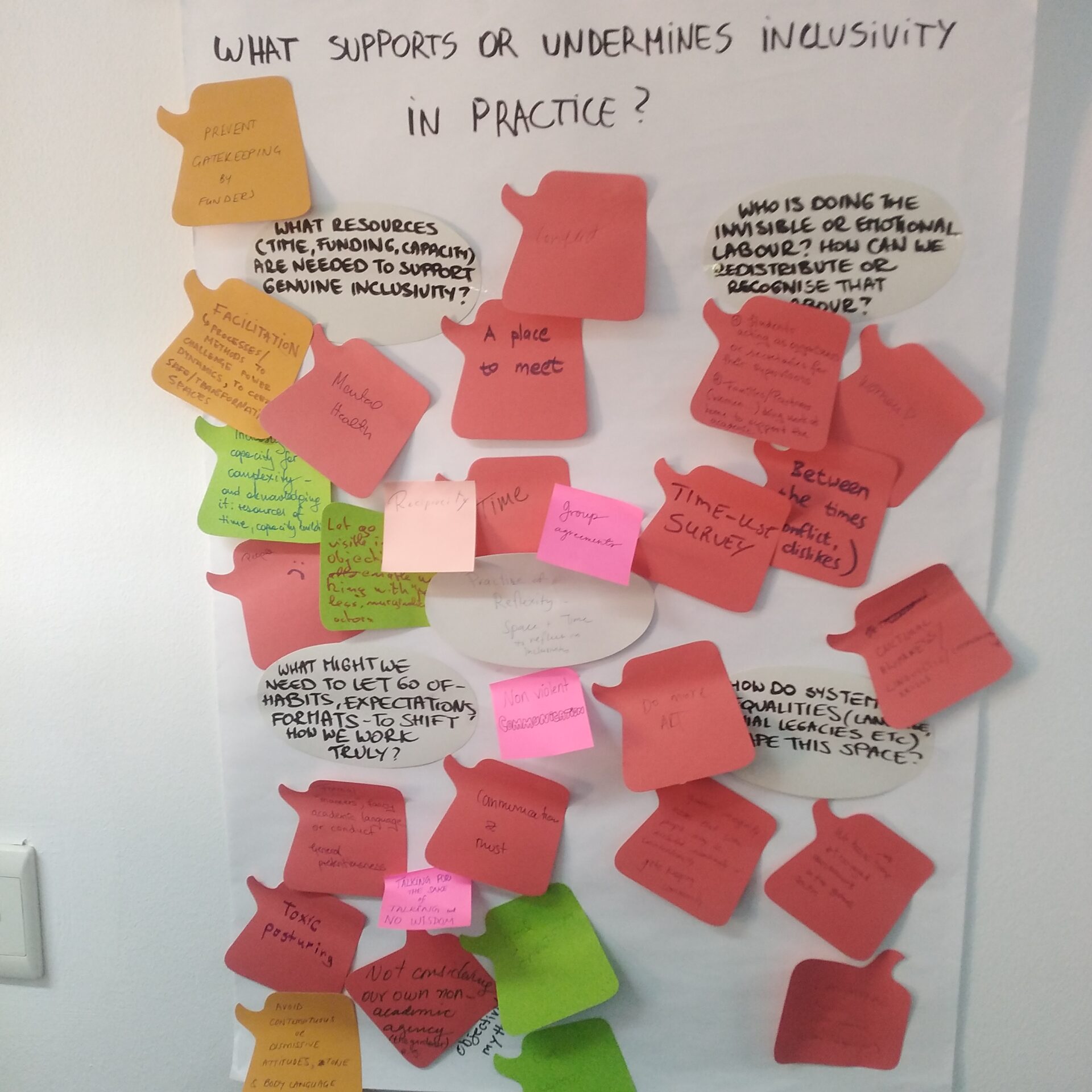Insights from the Transformations Community Conference
/
Introduction
The Transformations Community Conference, held from 18-21 August 2025 in South Africa, brought together diverse voices from across the globe, with a strong emphasis on transformative change. It illuminated stories, theories, and practices that challenge dominant paradigms, while underscoring the necessity of unlearning entrenched master narratives. In particular, the discussions highlighted the complex and “wicked” nature of transformational change, emphasizing its non-linear, contested, and multidimensional character. Participants stressed that advancing such transformation requires a fundamental rethinking of prevailing values and paradigms, alongside a deliberate shift toward more inclusive, adaptive, and contextually grounded approaches.
Transformational change was framed as a process that is collaboratively generated, empirically informed and theoretically sound, while remaining dynamic and sensitive to diverse socio-political and ecological contexts. The discussions underscored that transformation-oriented policy interventions frequently encounter conflicts, pushback, and resistance, collectively conceptualized as discord. Such discord undermines transformative efforts across critical domains, including
climate change, biodiversity conservation and urban development where ambitious policy interventions are derailed by political backlash and societal opposition. Notably, existing transformation frameworks often treat discord as a temporary barrier resolvable through consensus-building. This tends to undermine its structural and enduring nature.
Key Takeaways
a) Nature of transformative change
- Transformative change transcends incremental policy adjustments, demanding systemic re-orientation of societal values, narratives and paradigms.
- Transformative change requires the integration of diverse knowledge systems, including scientific expertise, indigenous worldviews, and local experiential knowledge.
- Transformative change is inherently political, shaped by competing interests, powerdynamics, and institutional arrangements.
b) Challenges in advancing transformative change
- Causal complexity: Establishing a clear cause-effect relationships in interconnected, adaptive systems is highly challenging.
- Epistemic diversity: Reconciling multiple knowledge systems and value frameworks necessitates sustained engagements and methodological pluralism.
- Political dimensions: Entrenched power imbalances, resistance to change, and the dominance of prevailing narratives continue to undermine transformative efforts.
- Underestimation of discord: Many frameworks view discord as an anomaly to be overcome through consensus, rather than acknowledging it as a structural and enduring feature of a transformative process.
c) Regime resistance to transformation
The workshop explored how structural and political forces sustain resistance to transformative change. Such resistance was linked to:
- Path dependence: Historical decisions and institutional trajectories that lock systems into established patterns, constraining future flexibility.
- Vested interests: Stakeholders benefiting from existing arrangements resisting changes threating their influence or resources.
- Institutional locks and strategic narratives: Mechanisms and discourses that reinforce dominant frameworks while marginalizing alternative approaches.
Social movement theory was highlighted as a valuable analytical lens for understanding how power dynamics and resistance mechanisms are organized, legitimized, and sustained in practice.
d) Strategic considerations for advancing transformative change
The conference proposed several strategic pathways to foster transformation, including:
- Narrative transformation: Challenging dominant narratives and opening spaces for alternatives, community driven perspectives, including those rooted in indigenous knowledge systems.
- Identification of leverage points: Targeting specific nodes within socio-ecological and institutional systems where small, strategic interventions may catalyze significant structural shifts.
- Dialogic and trust-based engagement: Fostering inclusive dialogue, active listening, and participatory process to reduce fear, overcome resistance, and build collective ownership of transformational pathways.
Published
CLARE Projects
CLARE Partners


